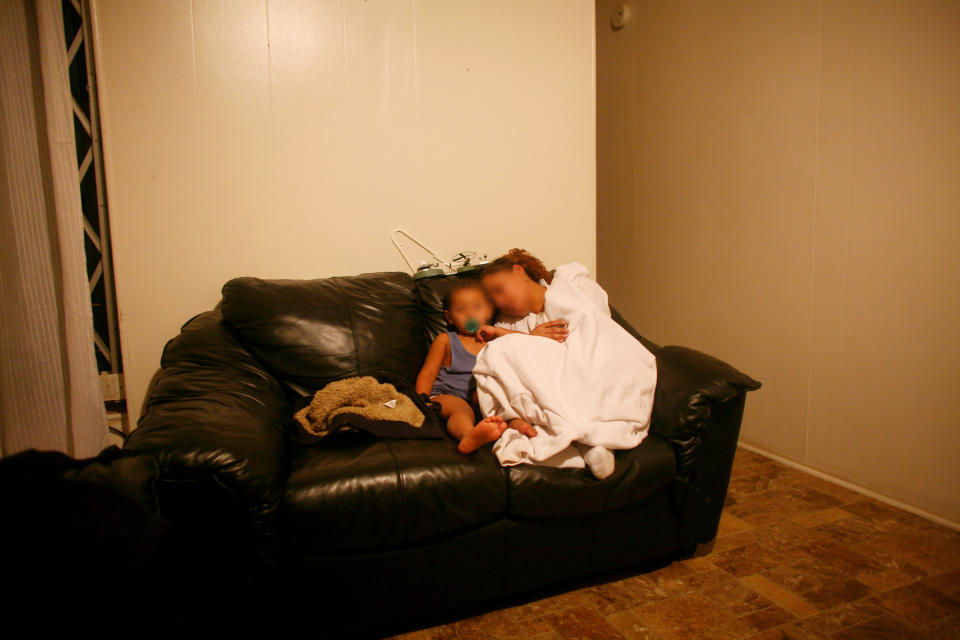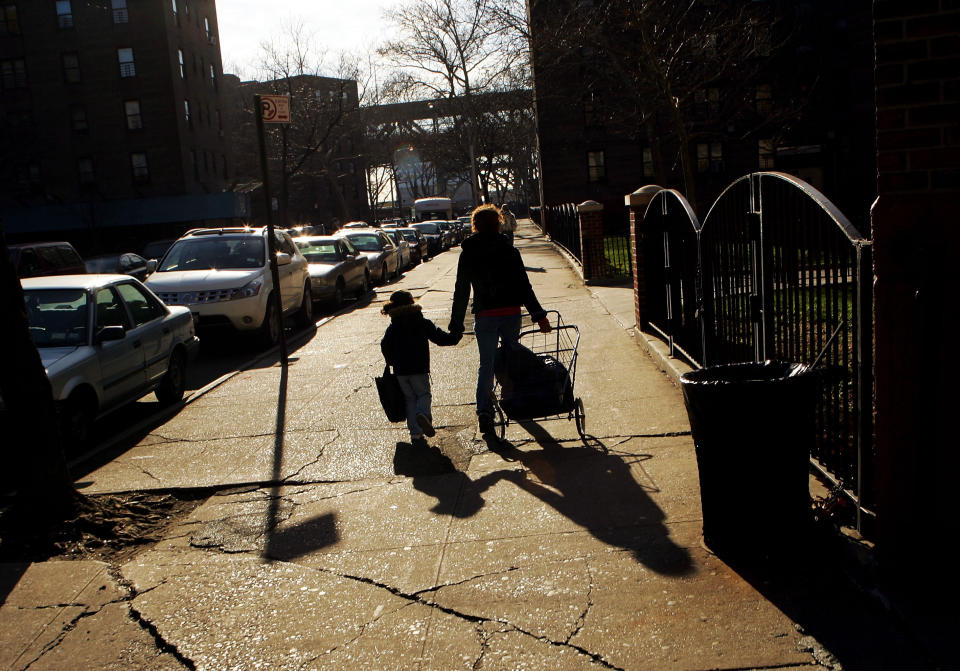Unfiltered: '"I know I'm on welfare, but I'm also an American"'
There was the working mother of three girls who fell silent as her daughter asked, “Mom, are they going to kill you?”
There was the teenager who feared she would be left to care for her three younger siblings after watching her mother frantically hide her family during the investigator’s visit.
And there was the homeless mother of two who was denied benefits until she was forced to confront her abusive stepfather.
These stories — of unannounced, warrantless home searches — provide a brief glimpse into the harrowing experiences impoverished parents and individuals have gone through when applying for public assistance in San Diego.
Project 100%, a program launched in 1997 and currently managed by the San Diego County’s Department of Child Support Services, employs investigators to go into the homes of potential welfare recipients in order to further verify eligibility for government aid.
A lawyer with 22 years of experience fighting for the rights of low-income individuals and welfare recipients, Joni Halpern believes sole purpose of Project 100% is to falsely unearth evidence of fraud. “You passed all the verification requirements. You overcame all the obstacles. You did the face-to-face interviews. You showed up with all your documents. They checked all the databases. And you came out eligible for this meager little but of public assistance,” said Halpern. “And Project 100% said, ‘We’re not finished with you yet.’”
Halpern said that the experiences of her clients are not only a disturbing invasion of privacy, but they are also deeply demoralizing: “[The investigator] finds three toothbrushes in a household that said there was a parent and a child. ‘I don’t know. What’s three toothbrushes doing there?’ Medication, prescription in the medicine cabinet that had been left by the [father] when he took off. ‘What’s it doing in there?’”
In some cases, people feel as if they are on house arrest, unable to leave their homes if the investigator comes knocking. Halpern said, “I have heard of parents who said they missed their classes; they were late picking up their kids … because they were afraid of missing the investigator and they needed the aid so badly.”

Halpern recalls the horrors of having heard these stories firsthand, saying, “The kind of things that I was seeing as Project 100% rolled out were the kinds of excesses that you say in your gut, ‘Well, for sure the Constitution can’t think this is OK.’”
“Well, I was wrong.”
In June 2000, Rocio Sanchez separated from her husband and applied for public assistance. A Project 100% fraud investigator appeared at her back door, interrogated her, and searched every room in her house. Upon seeing a man’s shirt and shoes, he asked Sanchez if they belonged to her husband. Although she clarified that the clothing belonged to her brother and not her ex-husband, she was denied aid. The ACLU filed a class action suit against San Diego County and named Sanchez as the lead plaintiff.
“[The search] was not being done by a social worker. It was being done by a fraud investigator who is charged with the work of finding fraud. It wasn’t about rehabilitating anyone from poverty,” said Halpern.
In 2006, the Ninth Circuit upheld the constitutionality of Project 100% and ruled that the home search was not in violation of the Fourth Amendment, which protects a person’s right to refuse. Halpern was taken aback: “It’s shocking, I think, for anyone of us who has been raised to think that there are certain minimum thresholds of decency that the Constitution protects … I don’t know how they could parse it out and find a different result.”
In a statement to Yahoo News, Project 100% stated that the program “finds fraud in, on average, 6% of [welfare] applications. The employees assigned to this program also frequently connect applicants to other nonprofit and government programs, as well as potential job opportunities, to help them break the cycle of poverty.”
According to a 2014 report published by researcher Hilda Chan at the Open Society Foundations, the origins of Project 100% did not have to do with an alarming rate of welfare fraud, but rather the lack thereof: Meeting minutes of a San Diego County district attorney roundtable on Feb. 8, 1997, detail the workers of the public assistance fraud unit complaining about the low number of fraud referrals. As a result, supervising district attorney investigator Frank Reid proposed home searches as part of the requirements for welfare. The idea was well-received, and Project 100% began operations that year.
“I’m not a person who has a gripe against government being government, because I think that at the bottom, government has a mandate to take care of its people. It has a mandate to hold people accountable. It has a mandate to try to keep us honest,” says Halpern. “So, if you want to keep your jobs, great. But how about if we do this: How about, if instead of doing 10 searches a day of parents’ homes whose applications are profoundly innocent, OK? How about if you devote some of your manpower to consumer protection of all the ways that low-income people get taken advantage of?”

The resources the program has used have also not escaped scrutiny: Although the county has provided documents that indicate Project 100% has saved San Diego $305,000 of welfare fraud during the 2016-2017 fiscal year, the operating costs of Project 100% were about $2 million. Also, what the program counts as fraud cases includes application withdrawals, in which no instances of fraud occurred. “[The San Diego Health and Human Services Agency] has verified that its P100 [Project 100%] data collection method has historically inflated P100 fraud rates,” said Chan in her report.
Recently, Project 100% has appeared in the news because of a lawsuit filed by the ACLU accusing the program of denying state benefits on the basis of race and gender.
With the constitutionality, efficacy, and original purpose of Project 100% being called into question, Halpern hopes to see the program abolished and replaced with a more useful, helpful option. “To think about ending my career with the same problems that we see for decades,” she says between tears, “There’s a sadness in that.”
Halpern said: “While we are a nation that prizes independence and independent thinking and ambition and all the good things, you know? you can’t live your entire life with only that as your mantra, and the other side of that coin saying to people who don’t do as well as you, ‘Personal responsibility, you haven’t taken personal responsibility for your poverty, for your hunger, for your homelessness, for your cancer.’”
“When you do well, I do better. When we feed the kids properly and we educate the kids properly, and we let their parents develop skills they might not have had, we lift ourselves up as a country. I don’t know how it is that we ever forgot that … Until now, we’re shouting at each other and pointing fingers at each other, and hating each other and hating the poor. Why? What good has that ever done our country?”
An earlier version of the article and video stated that Project 100% is managed by the San Diego County District Attorney’s office. It is actually managed by San Diego County’s Department of Child Support Services. The text and video have been updated accordingly.


